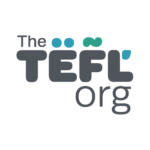On the 23rd July 2020, the Irish government announced a ‘sizeable’ July Jobs Stimulus aimed at getting Ireland’s businesses back on their feet and get as many people as possible back to work as quickly as possible. The €7.4 billion package of measures is designed to stimulate a jobs-led recovery and build economic confidence while continuing to manage the impact of COVID-19.
Launching the Jobs Stimulus, the Taoiseach, Micheál Martin TD said:
“The stimulus package announced today will protect existing jobs while creating new and sustainable employment options in the months and years ahead. These measures will support small and medium businesses, give young people greater opportunities in training and education, support workers who have lost their jobs because of the pandemic and rejuvenate communities worst affected by the economic impact of the virus. This is a comprehensive plan which will boost the economy and bring confidence back to towns and villages across Ireland.”
In summary, the measures launched are designed to do 4 things:
- Back Ireland’s Businesses
- Help People, especially young people, get back to work
- Build Confidence and investing in communities
- Prepare Ireland for the Economy of the Future
As part of helping people, especially young people, get back to work, €200 million has been marked for investment in training and education, skills development, work placement schemes, recruitment subsidies, and job search and assistance measures. This package has been designed to help those who have lost their jobs find a new one, retrain, or develop new skills, in particular for emerging growth sectors.
This will include:
- 10,000 additional places on work placement and experience schemes available for those unemployed for over 6 months
- 12,500 additional places funded through the Training Support Grant for short term skills training
- 35,000 additional places in further and higher education. These will be delivered through a variety of measures including Skills to Compete Initiative (SOLAS), Skillnet, Springboard+ and the Human Capital Initiative, as well as through additional undergraduate and postgraduate provision in the Higher Educational Institutions
- the Apprenticeship Incentivisation Scheme will provide a €2,000 payment to support employers to take on new apprenticeships in 2020
- a Retrofit Skills Training Initiative will support future expansion of the National Retrofitting Programme
- 8,000 recruitment subsidies under the JobsPlus scheme. Subsidies of up to €7,500 over two years will be available for employers to hire someone under the age of 30 who is on the Live Register or the Pandemic Unemployment Payment
- the capacity of the Public Employment Service will be increased to support jobseekers through job search advice and assistance, including through contracted services such as JobClubs, JobPath and Local Employment Services
- the Back to Work Enterprise Allowance and Back to Education Allowance will be extended to people currently in receipt of the Pandemic Unemployment Payment
- 3,000 additional places will be funded on State Employment schemes such as Community Employment and Tús
Speaking about the new measures, the Minister for Further and Higher Education, Research, Innovation and Science, Simon Harris, TD said:
“Covid-19 has turned many of our lives upside down. For some of us, the pandemic has resulted in a loss of employment and maybe the loss of a career path.
The pandemic has had a disproportionate effect on younger workers and those in lower paid occupations. The pace of workplace change has also accelerated; digital skills are essential in almost all occupations. A “once and done” approach to education and training is no longer enough. Upskilling, reskilling and refreshing of skills need to be supported throughout people’s working lives.
The package of funding for higher and further education and training to address this situation amounts to €100 million and will fund over 35,500 places in the current year. This includes 19,000 full and part time places through the Skills to Complete programme aimed at unemployed people seeking work. This initiative will assist people who have lost their jobs during the pandemic by offering them reskilling opportunities in sustainable areas of employment including health care, childcare, eCommerce, software development and online sales.
“We will also offer 3,300 one year post grad courses in areas where there is a skills need at a cost of only 10% to the student.
I am particularly excited about the Apprenticeship Recruitment Incentive. For the first time, we will financially incentivise employers to hire apprentices. Employers will receive €2,000 upfront per apprentice and a further €1,000 after 12 months if the apprentice is still employed. This is good for business and good for the individual.
For businesses, we will offer, through Skillnet Ireland Covid-19 Employment Activation Scheme, a range of supports including Covid training supports, new digital skills, management training and a Climate Action Upskilling Scheme.”
Thousands of courses near you in Ireland at your fingertips here.


















